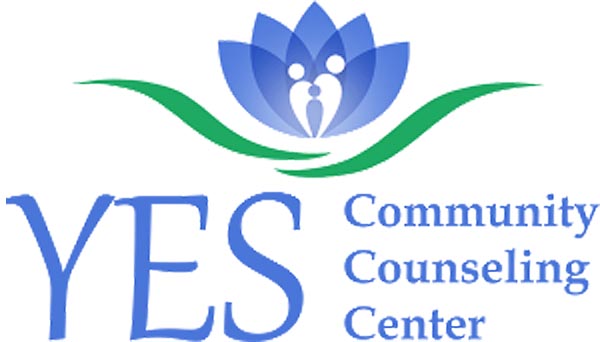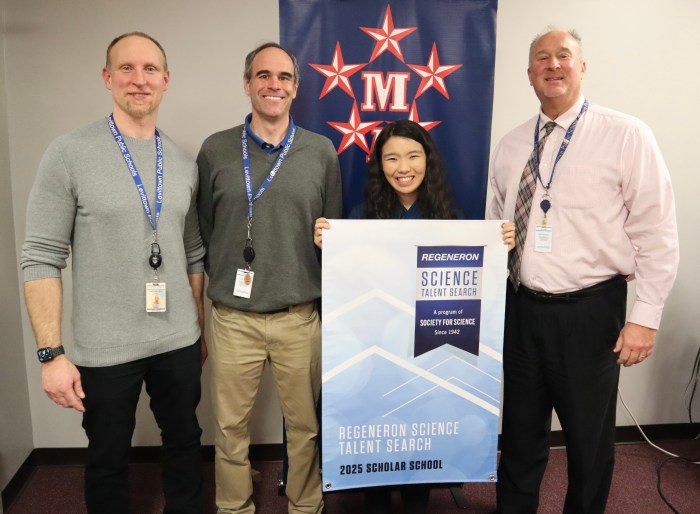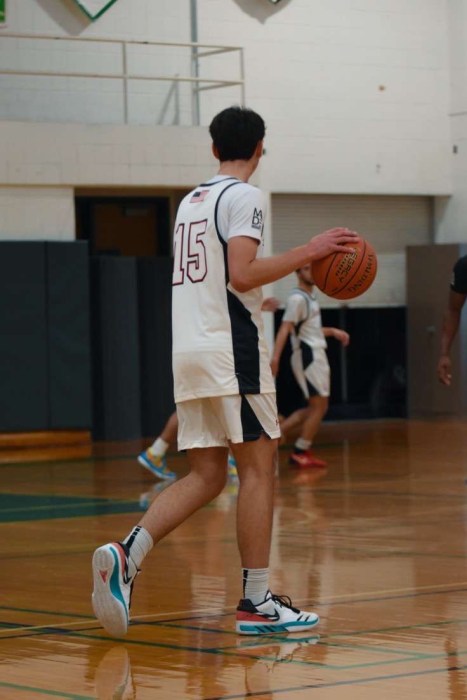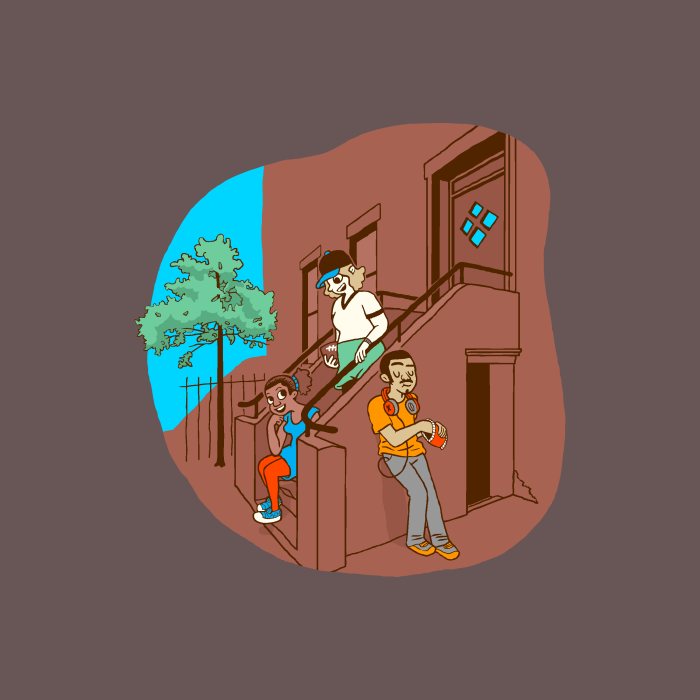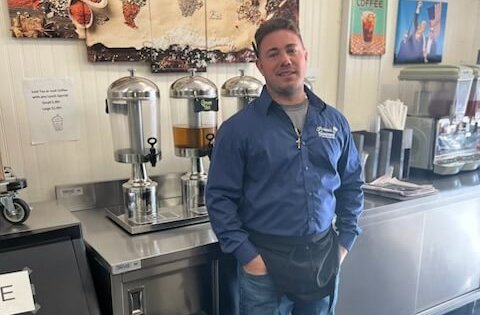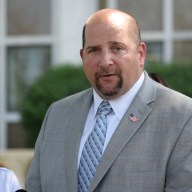 While every relationship, platonic or romantic should be based on communication and respect, sometimes it’s not all that simple. In some cases, respect becomes disrespect, private is made public and love turns violent.
While every relationship, platonic or romantic should be based on communication and respect, sometimes it’s not all that simple. In some cases, respect becomes disrespect, private is made public and love turns violent.
Jamie Bogenshutz is a licensed and clinical social worker and executive director of YES Community Counseling Center (YES CCC) in Massapequa and Levittown. The center is a community-based, nonprofit organization that has been serving the residents of southeastern Nassau County since 1977, and is a safe space for those in need of help, especially young people and young women.
“YES CCC has a specialized program called WISH (Women in Shared Healing), which is designed to assist children, teens and adults to respond to the effects of trauma and abuse,” said Bogenshutz. “Specially trained therapists are available for counseling and support and are keenly aware of the struggles and challenges that teens may face. And dating violence is not always spoken about, but is quite prevalent.”
One of the great debates of decades past, is whether or not technology is a blessing or a curse. In terms of the dating universe, it has not been all that helpful. While media has played a role in glorifying violence and molding young teens minds into believing how they should look and behave for years through magazines, television and movies, when asked about her views on social media in the dating world, Bogenshutz said there is no doubt that teens today are effected by its impact.
 “From body image to self-esteem, to exposure and acceptance of violence and harassment, we live in a culture where people are quick to judge and be critical toward others,” she said. “Quite often, the results are devastating and can easily be compounded if a young person is living in a home where domestic violence is prevalent. Sadly, many children will learn what they live. That sometimes can mean, tolerating violence and mistreatment as it is a norm for him/her, to perpetrating violence and mistreatment toward others.”
“From body image to self-esteem, to exposure and acceptance of violence and harassment, we live in a culture where people are quick to judge and be critical toward others,” she said. “Quite often, the results are devastating and can easily be compounded if a young person is living in a home where domestic violence is prevalent. Sadly, many children will learn what they live. That sometimes can mean, tolerating violence and mistreatment as it is a norm for him/her, to perpetrating violence and mistreatment toward others.”
And abuse takes many forms. From physical and emotional to mental and verbal, sometimes abuse is very difficult to spot or stop. According to Bogenshutz, physical abuse generally leaves tell tale signs including marks, bruises and blame placed on the victim. But what’s not so obvious is emotional abuse, which can take different forms.
“In an abusive relationship it is not uncommon for the abusing partner to be very controlling and possessive; limiting friends and activities and often times may try to isolate the other from friends and family,” Bogenshutz said. “This might also include reading texts and monitoring social media outlets, to making decisions about what someone should wear or where they can or cannot go.”
To be in a position of power is also a way abusers target their victims. Some may work very hard to shame and embarrass his/her partners while others will use blackmail or threats to exert their power and control. Unfortunately, Bogenshutz says it also reaches a deeper level and can turn sexual.
“Sex is also used as a tool to threaten and intimidate,” she said. “Typically, the abuser also demonstrates a tremendous amount of jealousy that is often couched with statements like ‘I want you all to myself, no one can love you like I do,’ and sadly, victims often misunderstand what they think is sweet when it is really jealousy and possessiveness.”
The cycle of abuse starts out benign and gets progressively worse and more severe over time. According to Bogenshutz, while sometimes the assistance and support of a parent or adult is enough to assist, more often than not, professional help is needed.
“If the abuse is severe enough, police intervention may also be warranted. The victim may often feel alone, embarrassed and ashamed, but blaming and accusing is not helpful for someone in the throws of an abusive relationship,” she said, noting that support, resources and an understanding that they are deserving of a healthy and loving relationship is critical. “Help is out there. If a friend knows that their girl/boyfriend is in trouble, they should tell an adult who can assist. They can also reach out to agencies like YES CCC and 9-3203. Long Island Crisis Center is a 24-hour, 7 day a week hotline that is also a great resource if someone needs to talk.
Another supportive organization is the Partner Project, a nonprofit 501(c)3 charity that works to end the silence associated with relationship, domestic and dating violence through education, training, research and responsible action. It also promotes the importance of healthy relationships, personal safety and improved quality of life for those who suffer in silence. Teresa Aprigliano, Ed.D, RN is a co-founder and COO of the organization.
“The Partner Project focuses on the identification of unhealthy relationship patterns and the identification of healthy relationships, boundary setting and pro-active bystander interventions,” said Aprigliano, noting that the organization’s programs are developmentally-age appropriate for middle school, high school, and college aged students and work places. “Additionally, with our unique backgrounds we offer educational programming on Trauma Informed Training and the Neurobiology of Trauma.”
The list of ways to abuse someone continues to grow, and it is a long list. Aside from physical and emotional abuse, teens also rely on cyber-abuse to hurt their partner via all forms of technology. Financial abuse and academic abuse are also forms of abuse, and while they are lesser known, they can be very costly and devastating to a young adult.
Aprigliano recommends that although it may be difficult on both sides—the victim and parent or guardian—the best course of action is to talk with someone immediately.
“If it’s a young adult or friend, seek out a trusted adult in the form of a parent, guardian, teacher, guidance counselor or trusted family member,” said Aprigliano. “You can also call hotlines or other community advocacy agencies and speak to someone there.”
In the case where the parent or adult is looking for advice on the situation with their teen, Aprigliano said to contact school personnel as they have resources and contacts they can refer the adult to.
“On a long-term basis, it is important to use daily life as teachable moments. Spend time talking with your child and getting to know their friends. When incidents of relationship abuse appear in the media, have an age appropriate discussion,” she said. “Try to gauge what your child feels/believes is right and or acceptable. Ask how they would handle the situation. Frank, open and honest discussions are vital to the beginning of breaking the silence and understanding the issues and creating long-term social change.”
For more information on The Yes Community Counseling Center, call 516-799-3203 or visit www.yesccc.org. To learn more about The Partner Project, visit www.thepartnerproject.com.



